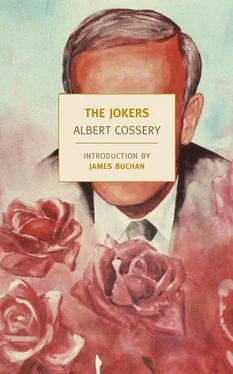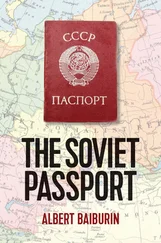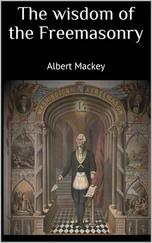Karim bustled around the press like a child getting ready to show off a complicated toy. He turned toward Urfy.
“Superb, isn’t it?” he said with the pride of ownership. “It’s almost new. Khaled Omar has demonstrated his sincerity; he spared no expense.”
“Yes,” said Urfy. “Will you tell me what you need me to do?”
“In a minute, we’ll start setting type. I’ll explain how it works; it’s not hard. But first let’s turn on some lights — I can’t see anything in here.”
He went to flip the switch. Two bare lightbulbs suspended from the ceiling projected a harsh light into the room, reintroducing a dim hint of the blazing heat outside.
“Let’s get started,” said Karim, going over to the table and sitting down in the other chair.
“At your service,” Urfy said.
By nine that evening, when Heykal arrived with Khaled Omar, more than five hundred posters bearing the portrait of the governor in full military dress were piled on the floor of the warehouse. The businessman wore a bottle-green suit and a dazzling red tie, and smelled more strongly than ever of violets. He walked up to Karim and took the young man in his arms, kissing him on both cheeks and showering him with congratulations. At the late hour his exclamations rang out and echoed throughout the silent port.
“You’ve done all this already! What a genius!”
Khaled Omar fell silent as Heykal began to read the poster out loud, articulating each word as solemnly as a death sentence. Hearing the litany of praise for the governor, Khaled Omar could hardly contain his joy: he bobbed his head like an imbecile; he clutched his chest as if suffocating with happiness. But, in fact, he was just coming to a full appreciation of the murderous treachery of their hoax and was congratulating himself for his part in it.
“The portrait alone is eloquent enough,” said Heykal, when he’d finished his reading. “But I bow down before the writer; he’s just caused the suicide of our beloved governor.”
And for the first time since he’d entered the warehouse, he looked at Urfy.
Urfy received the compliment with some embarrassment, as if his inability to fully share Heykal’s pleasure made him guilty, a traitor to his cause. He smiled appreciatively, but Heykal seemed to detect the bitterness behind the smile. He became very serious, then, after a moment’s reflection, he addressed the schoolmaster again.
“You know how much I love you, brother. But there’s something about you that’s making me worry. Are you ill? That would upset me deeply.”
He spoke with such sincerity that Urfy was both moved and disturbed. But he recovered quickly, realizing what Heykal was alluding to by inquiring after his health. He was asking, indirectly, for news of his mother — his unfortunate mother, his private affliction. Heykal couldn’t hide his real intentions; Urfy had seen him in action too many times. Every time he came over, he would visit the old lady’s room; you’d think he came just to see her. Then with the same serious look he had at this moment, he’d speak to her, displaying his most refined manners and putting on his best gentlemanly tone. And, incredibly, the madwoman was flattered; she grew coquettish; she called him “prince.” It was an unnerving spectacle — Urfy couldn’t understand how it worked, and he preferred to forget it once it was done. He wondered if Heykal only responded to the crazy side of life and if he wasn’t a bit crazy himself.
“I’m doing very well,” he replied.
“But you look tired,” Heykal observed.
“I’m very busy these days. You know, I’m the sole director of the school.”
“I understand. But why the bitterness? My dear Urfy, you know how much I care about you. I’d hate for anything to come between us.”
“What bitterness?”
“Your behavior has changed. It’s as if you don’t agree with us anymore. Don’t you like our new projects?”
“I share your ideas entirely,” said Urfy with the vigor of a disciple accused of lack of enthusiasm. “If I’m bitter, it’s nothing to do with our projects. It’s personal.”
“Well then, listen to me. When these posters are plastered on the walls of this city, people will be stunned — they won’t know what to think. Even the regime will wonder if it’s a publicity stunt pulled by the governor. There’ll be terrible confusion. And it makes no sense to stop there. We’ll put up posters in every corner of the city, and after, we’ll put up others. Starting now, we are all devotees in the cult of the governor — even in casual conversation. Can I count on you?”
But Urfy didn’t have the time to respond. Suddenly they heard the booming laugh of Khaled Omar, who was lounging in a chair while listening to Karim read from the poster. The businessman couldn’t get enough of the panegyric; he asked his young friend to read it again right away, which Karim did. Urfy looked at Karim and thought of the scene at the school between the young man and his mother. He was overcome with shame. Would Karim tell Heykal? Of course, he’d brag about it as a victory. The thought chilled Urfy’s heart. He felt no rancor toward Heykal, only regret at not being able to love him unconditionally. He admired Heykal; he could sacrifice his life for such a man. Heykal with his impeccable appearance and his aristocratic manners was always the same; personal problems could never rattle his cold determination. Urfy envied him this sheer indifference to unhappiness. He felt alone, attached by a thread to Heykal’s madcap world. Would the thread break?
“Everything’s ready for tonight?” Heykal asked Karim.
“Yes, everything’s ready,” Karim replied. “I made an appointment with some friends and they’re supposed to join me here soon. We’ll form groups and divvy up the neighborhoods.”
“Excellent. You’ve been wonderful!”
“When I think about the posters I pasted up a few years ago, attacking the government…”
“And now you’re praising it. What a nice change!”
“I’ll come along,” Khaled Omar proposed. “I want to put up at least one.”
“Not a good idea,” said Heykal.
He didn’t say why, but he was thinking that Khaled Omar’s wild getup and booming laugh would attract attention to the group.
“I bow to your orders,” said the businessman, not in the least put out.
Heykal smiled at him. Then said:
“You must excuse me — I have to go.”
He walked over to the pile of posters and took one, stared at it for a while, then folded it up and slipped it into the breast pocket of his jacket.
“I might need it tonight,” he said enigmatically. “Goodbye!”
He left the warehouse and walked out into the empty street, happily inhaling the invigorating scent of the sea.
The scent of the sea mingled with the perfume with which Soad had doused her wispy, half-developed adolescent body. She rolled on the sand, striking lewd poses as if to seduce the stars; no one else was in sight. She was on the beach at the end of the deserted casino promenade, in a sheltered spot away from the twinkling lights of the open-air disco. By the time it reached her, the music’s deafening beat had died down, acquiring a ghostly resonance as ethereal as her own presence on this abandoned stretch of sand. She froze for an instant, her face set in a childish pout; then she scooped up a fistful of sand and let it sift over her hips, enjoying the sensation of it pressing down on her, heavier and heavier, massaging her like a deep caress. She repeated this trick a few more times, hovering on the brink of ecstasy, resisting the desire that flooded through her body. Suddenly she stopped; with a supple flick of the hips, she shook the sand from her dress and turned to look at the lights of the disco.
Читать дальше












